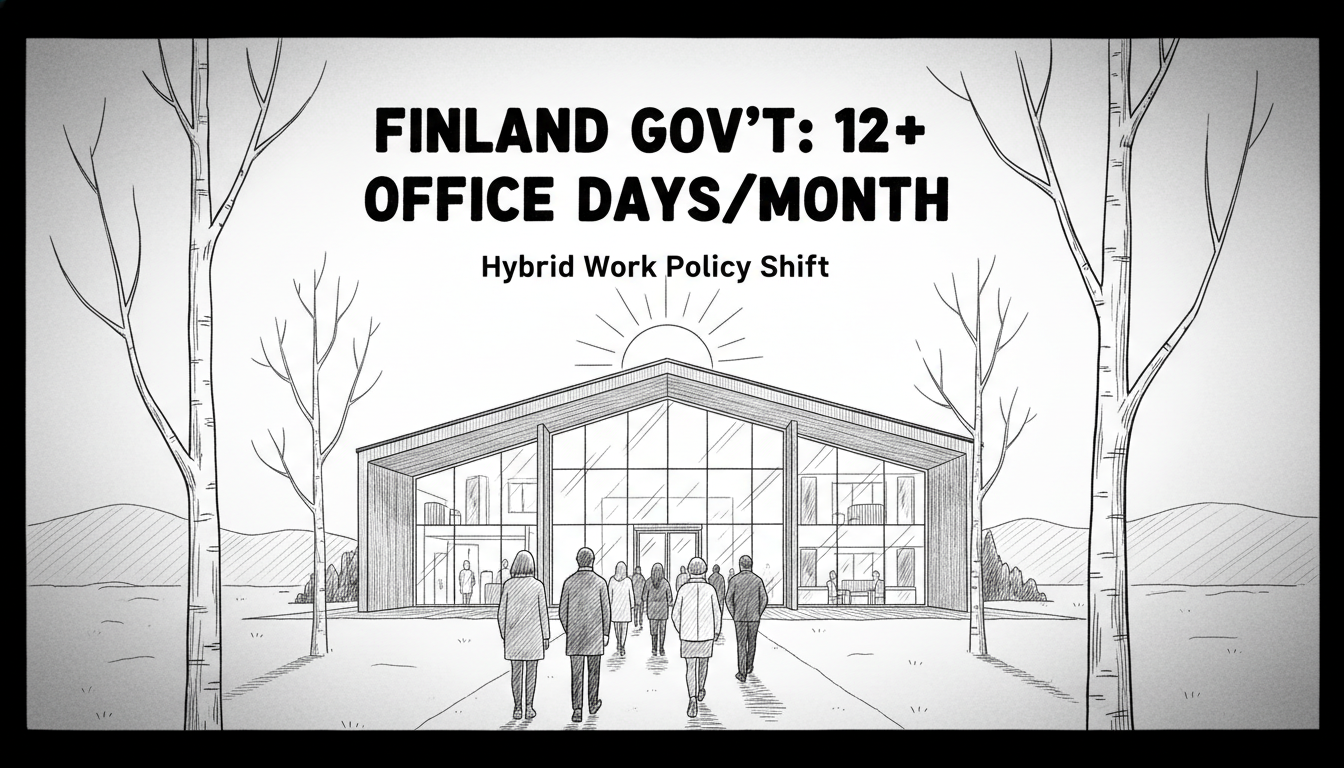Finland's Ministry of Finance has released new guidelines for remote and hybrid work across government agencies. The recommendations call for public sector employees to work from their offices at least 12 days per month. This represents a significant shift in Finland's approach to workplace flexibility.
The guidelines aim to strengthen workplace community, improve employee wellbeing, and boost public administration productivity. Officials emphasize that the recommendations leave room for individual agencies to adapt based on their specific operational needs.
A notable change allows partial remote work days for the first time. Employees can now split their workday between home and office. However, the ministry clarifies that commute times between remote work locations and offices do not count as working hours.
The government continues to support work-life balance through existing flexible arrangements. These include part-time work and flexible hours as agreed in collective bargaining agreements.
Different government agencies maintain varying remote work policies based on their operational requirements. Security sector positions, representing nearly 40% of state employees, often require physical presence due to the nature of their work. Data protection and security concerns may also limit remote work possibilities in certain departments.
This policy update comes amid ongoing public discussion about remote work practices. Recent reports highlighted tensions at some agencies where employees expressed frustration about minimum office attendance requirements.
The Finnish state employs approximately 80,000 people across 168 different organizations. The security sector remains the largest employer within government service.
These new guidelines represent a balancing act between workplace flexibility and organizational cohesion. While allowing continued remote work options, the government clearly signals its preference for increased physical presence in offices. This reflects broader European trends where employers are reevaluating post-pandemic work arrangements.
The practical implementation will test whether 12 office days monthly strikes the right balance between flexibility and collaboration. Agency leaders now face the challenge of applying these guidelines while maintaining staff morale and productivity.
International observers will watch how Finland's approach to hybrid work evolves. The country has long been recognized for progressive workplace policies, making these developments particularly noteworthy for other nations considering similar adjustments.

